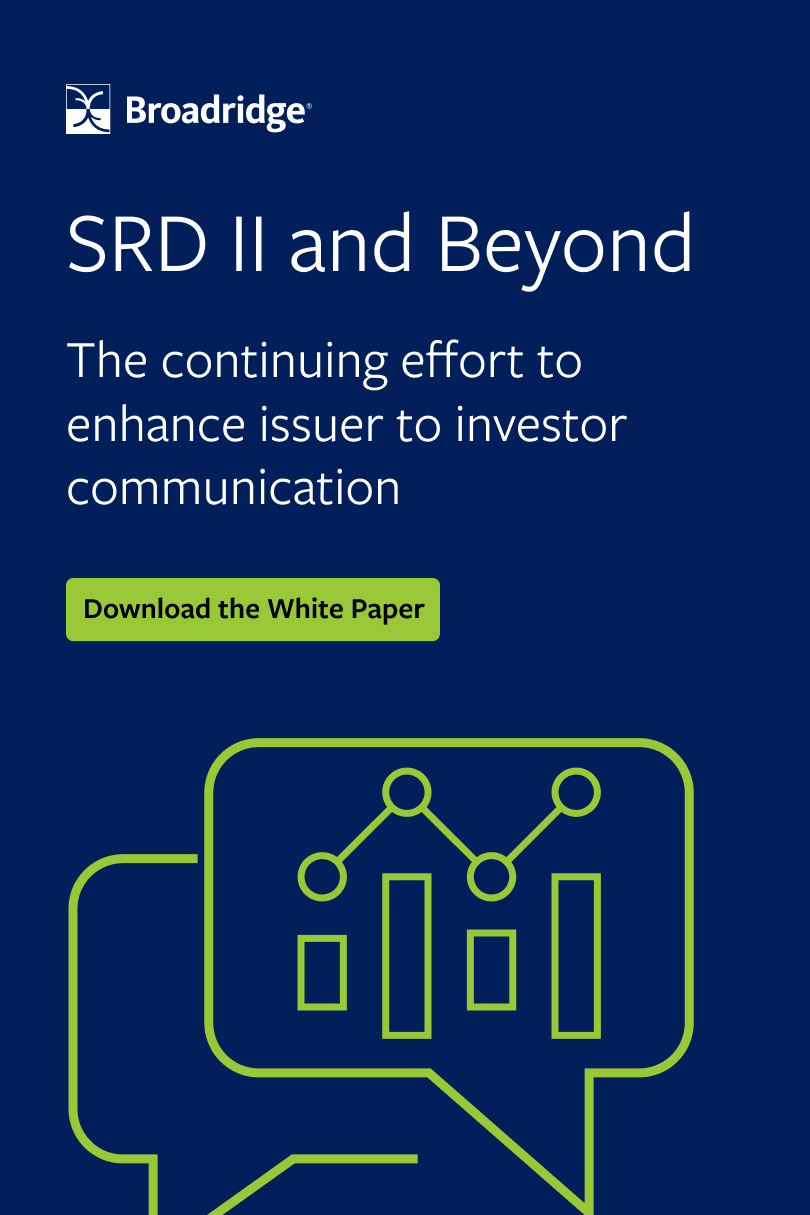The green lush lands of Ireland has experienced significant growth in recent years in its asset servicing industry. You could say it is down to a bit of Irish luck, however, its robust regulatory regime, multi-skilled workforce and status as an English-language location within the EU, are all factors that have helped it grow from strength to strength.
Ireland’s financial services industry has coped remarkably well since the financial crisis. Northern Trust said that it continues to see Ireland as a growth domicile and a location from which clients continue to extend their product ranges and grow their assets under management. On top of this, growth has also been observed in new clients launching funds for the first time.
But amid its successes, how has the Emerald Isle handled unprecedented challenges associated with the global pandemic, and what further challenges are on the horizon? Industry experts from Northern Trust, Irish Funds, and the Asset Management Exchange (AMX) discuss these and how the country has become a dominant force to be reckoned with.
A dominant force
Ireland experienced a significant rise in total fund asset services, funds and sub-funds after the financial crisis in 2008, and this growth has continued to rise making it a dominant player in the industry. Eoin Motherway, country head of AMX Ireland, notes that Ireland has been a resilient and progressive location for funds domicile and funds administration since 2008.
In fact, Motherway highlights that there has been a four-fold increase in funds under administration, now at 16,000 funds, with 14,000 people employed in the industry. While multiple domiciles are administered in Ireland, Irish domiciled fund assets have grown five-fold.
The split of product across that assets under management base of €3 trillion is very diversified with approximately 25 percent each in equity, bond and alternatives and 18 percent in money market funds, according to Motherway.
He adds: “With 30 years of experience, a diversified product range, a respected regulator and firm focus on institutional investors makes Ireland a dominant force for the future of the funds business. The multi-jurisdictional servicing that can be found in Ireland further enhances the ability of global asset managers to have their various investor and vehicle structuring needs met in one location.”
Kieran Fox, director of business development at Irish Funds, observes that exchange-traded funds (ETFs) are another area that has experienced significant growth over recent years.
During 2019, assets in ETFs in Ireland increased by 48 percent, totalling a €540 billion increase, across more than 900 ETFs, with Fox adding that Ireland now accounts for 63 percent of all European ETF assets.
Meanwhile, net sales into Irish domiciled funds have also been strong in recent years, with 2019 seeing net sales of €283 billion across all fund types. Fox highlights: “€252 billion of this was made up of net sales into UCITS, with ETFs disproportionately attracting more net sales. Demand for sustainable finance and environmental, social and governance (ESG) products are strong trends which have continued to increase.”
Stormy weather
Ireland’s successes have not been without challenges, and the current global pandemic has thrown a spanner in the works in terms of working from home and getting used to the new normal.
While the total of 7,707 Irish domiciled funds with assets more than €3 trillion by year-end 2019, growth continued for the first two months of 2020. This was reversed in March as a result of the impacts from the COVID-19 pandemic.
According to Fox, by the end of March, total assets in Irish domiciled funds stood at €2.7 trillion, representing a decrease of almost 11 percent from the beginning of the year.
Fox notes that the immediate focus of the fund and asset management industry in Ireland was to ensure staff could work effectively and securely from home. “Over the initial few weeks of lockdown, a significant effort was made on ensuring remote access and connectivity across teams and companies was in place to provide uninterrupted service to investors. During this time, there were also significant increases in market volatility and redemptions, which were navigated successfully despite operational stress,” he says.
After the initial rush to accommodate the new working environment, Fox explains that the subsequent focus has been on ensuring a sustainable, longer-term approach to effective remote working while carefully considering the needs of staff.
Meliosa O’Caoimh, country head, Northern Trust Ireland, comments: “Our sense is that Ireland from a fund services perspective has had a ‘good crisis’; momentum within the Irish funds industry has been stable throughout the pandemic, despite some deferment of new business.”
She continues: “As their asset servicer, fund administrator and global custodian, our focus has been on supporting our asset manager clients – helping them progress their businesses plans and communicate with their investors through what have been unprecedented times.”
Meanwhile, Motherway stipulates that there is a natural concern on the role of outsourcing in countries like India or the Philippines. “Their ability to move to a work from home environment has varied by country and by the firm that outsourced.”
“The industry has seen many servicing firms re-onshore or near-shore work that was outsourced. This has meant staff who had previously worked in an operational role and had progressed to a role outside of operations have had to move back.”
“While this reaction by firms is admirable in protecting clients and investors, it is not sustainable in the long-term as staff will want to return to their planned career path,” he explains.
On the topic of technology, Motherway adds: “The availability of technology resources has also been a challenge during COVID-19, something we’ve seen with some managers and investors. In our view, the role that institutional platforms can play in alleviating the burden of operation and governance would help focus on their core areas.”
Weighing in on this, O’Caoimh says: “The pandemic has accelerated the take-up of digital technologies and further digitisation across asset management – for example postal volumes have been significantly reduced – and we expect many of these solutions for electronic delivery of investor information to be our ‘new normal’ post-lockdown.”
Brexit taking a backseat?
Although COVID-19 has dominated the news stations recently, with Brexit taking a back seat, industry experts say that Brexit plans are still very much being worked on and developed in the financial services space.
O’Caoimh affirms that at Northern Trust, the long-term focus remains the same – to drive technological innovation that supports the needs of our clients and their investors. She says: “Whatever the outcome of the ongoing dialogue on Brexit, we expect Ireland’s long-standing, excellent relationship with the UK and primacy as a European funds domicile to provide continuing opportunities.”
Fox also highlights that with the possible exception of a few short weeks at the beginning of the pandemic, the industry’s attention on Brexit has never really taken a back seat.
“We remain focused on ensuring there is an ability to manage investments in an efficient way, within fund structures that can continue to be offered, cross border, to investors, ensuring greater choice, competition and ultimately better financial outcomes. For example, we recently engaged with HM Treasury and responded to their consultation on the formulation of a new Overseas Funds Regime to allow funds to continue to be made available to UK investors after the Temporary Marketing Permission Regime ends,” he cites.
Irish Funds are also focusing on how the fund and asset management industry can help with the economic recovery post crisis.
Reaching new heights
Like other countries around the world, Ireland’s financial services industry has been rattled by COVID-19-related challenges but it has proven itself to be strong and stable to weather through the storm. In terms of future growth, industry experts see environmental, social, and governance (ESG) and sustainable finance initiatives as ways to utilise further opportunities. O’Caoimh remarks that the Irish funds industry has a consistent track record of success and growth. Northern Trust intends to continue playing a role in that story, with particular focus on the automation and digitisation of the industry, as well as playing its role in the ESG debate. She says: “Ireland is well-positioned to play a leading role in the digitisation of the global funds industry. As the industry progressively becomes more efficient, and investors increasingly demand savings and pension information at the touch of a screen, industry participants will need to continue to pivot their operating models to embrace digitisation. We believe our teams in our Irish fund administration centres of excellence have the capability, creativity and passion to be a driving force for this change.”
Similarly, Fox notes Irish Fund’s commitment to help shape and implement the package of EU sustainable finance initiatives, meeting the expectations of stakeholders and improving outcomes for investors, regulators and society.
He explains: “To this end, Irish Funds has recently launched a new sustainable finance webpage, held a webinar and published an information note on the EU Sustainable Finance Regime. Assisting with rebuilding the national and European economies will also remain a priority for the industry for a considerable time to come.”
“Whether by assisting with the efficient deployment of capital to companies and projects, helping individuals save for their future needs or by growing employment and the associated economic contributions that follow, the industry in Ireland remains committed to playing a part in the recovery,” Fox adds.
Alongside this, Motherway highlights that Ireland is already internationally renowned for its reputation in processing, administering and distributing funds. In addition, following Brexit, Ireland will be the largest native English-speaking country in the EU, according to Motherway. He says: “There is a highly educated young population and the location and time zone makes it ideal for this industry. The recent period of remote or distributed workforces, combined with emerging centres of excellence around the country (nearly 25 percent) of the funds industry is located outside of Dublin), means Ireland has the skills and capacity to help the asset and fund industry to grow.”
Additionally, Motherway says the support of the Irish Government is also noteworthy. They have committed to the industry through a number of approaches and initiatives including: appointment of a dedicated minister for financial services, the published framework for the growth of the industry, Ireland for Finance 2025, focus on sustainable finance by way of policy and the UN accreditation a Financial Centre for Sustainability.
“All of this means that Ireland is leading the way for the new normal of the funds industry,” he concludes.



